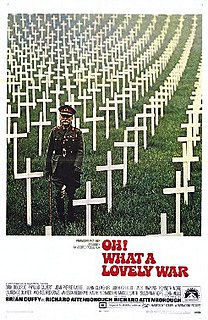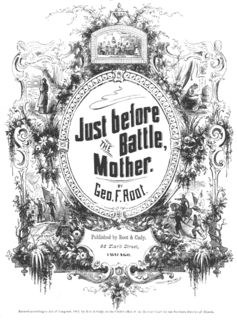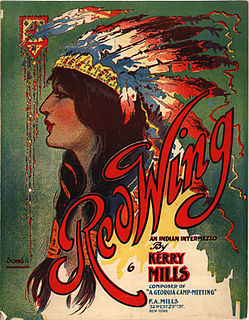This article needs additional citations for verification .(June 2017) (Learn how and when to remove this template message) |
| "I'll Make a Man of You" | |
|---|---|
 | |
| Song | |
| Written | 1914 |
| Composer(s) | Arthur Wimperis |
| Lyricist(s) | Herman Finck |
"I'll Make a Man of You" is a World War I recruiting song that was sung across Britain in hopes of rallying young men to enlist in the military. It is sung from a flirtatious young woman's perspective of how she dates military men in order to turn them into better soldiers. [1] It was written and composed by Arthur Wimperis and Herman Finck in 1914. The song was also showcased in Frank Lloyd's Cavalcade , and in the musical and film Oh, What a Lovely War! . [2]

World War I, also known as the First World War or the Great War, was a global war originating in Europe that lasted from 28 July 1914 to 11 November 1918. Contemporaneously described as "the war to end all wars", it led to the mobilisation of more than 70 million military personnel, including 60 million Europeans, making it one of the largest wars in history. It is also one of the deadliest conflicts in history, with an estimated nine million combatants and seven million civilian deaths as a direct result of the war, while resulting genocides and the resulting 1918 influenza pandemic caused another 50 to 100 million deaths worldwide.
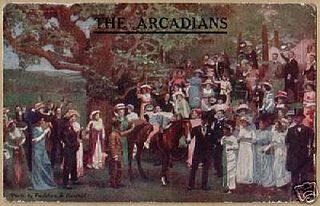
Arthur Harold Wimperis was an English playwright, lyricist and screenwriter, who contributed lyrics and libretti to popular Edwardian musical comedies written for the stage. But, with the advent of talking films, he switched to screenwriting, finding even greater success in this medium.

Herman Finck was a British composer and conductor of Dutch extraction.
This song is well known for spawning numerous obscene parody versions which were performed in music halls during World War I and World War II, and are often still sung by serving soldiers today. [3] One of the most notable of these parodies was "I don't want to join the Army", [4] [5] [6] a sanitized version of which also featured in Oh, What a Lovely War! . [7]

Music hall is a type of British theatrical entertainment that was popular from the early Victorian era, beginning around 1850. It ended, arguably, after the First World War, when the halls rebranded their entertainment as variety. Perceptions of a distinction in Britain between bold and scandalous Victorian Music Hall and subsequent, more respectable Variety differ. Music hall involved a mixture of popular songs, comedy, speciality acts, and variety entertainment. The term is derived from a type of theatre or venue in which such entertainment took place. In North America vaudeville was in some ways analogous to British music hall, featuring rousing songs and comic acts.

World War II, also known as the Second World War, was a global war that lasted from 1939 to 1945. The vast majority of the world's countries—including all the great powers—eventually formed two opposing military alliances: the Allies and the Axis. A state of total war emerged, directly involving more than 100 million people from more than 30 countries. The major participants threw their entire economic, industrial, and scientific capabilities behind the war effort, blurring the distinction between civilian and military resources. World War II was the deadliest conflict in human history, marked by 70 to 85 million fatalities, most of whom were civilians in the Soviet Union and China. It included massacres, the genocide of the Holocaust, strategic bombing, premeditated death from starvation and disease, and the only use of nuclear weapons in war.
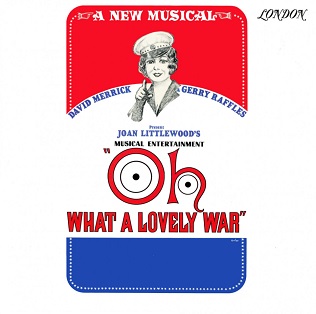
Oh, What a Lovely War! is an epic musical developed by Joan Littlewood and her ensemble at the Theatre Workshop in 1963. It is a satire on World War I, and by extension on war in general. The title is derived from the "somewhat satirical" music hall song "Oh! It's a Lovely War!", which is one of the major numbers in the production.



